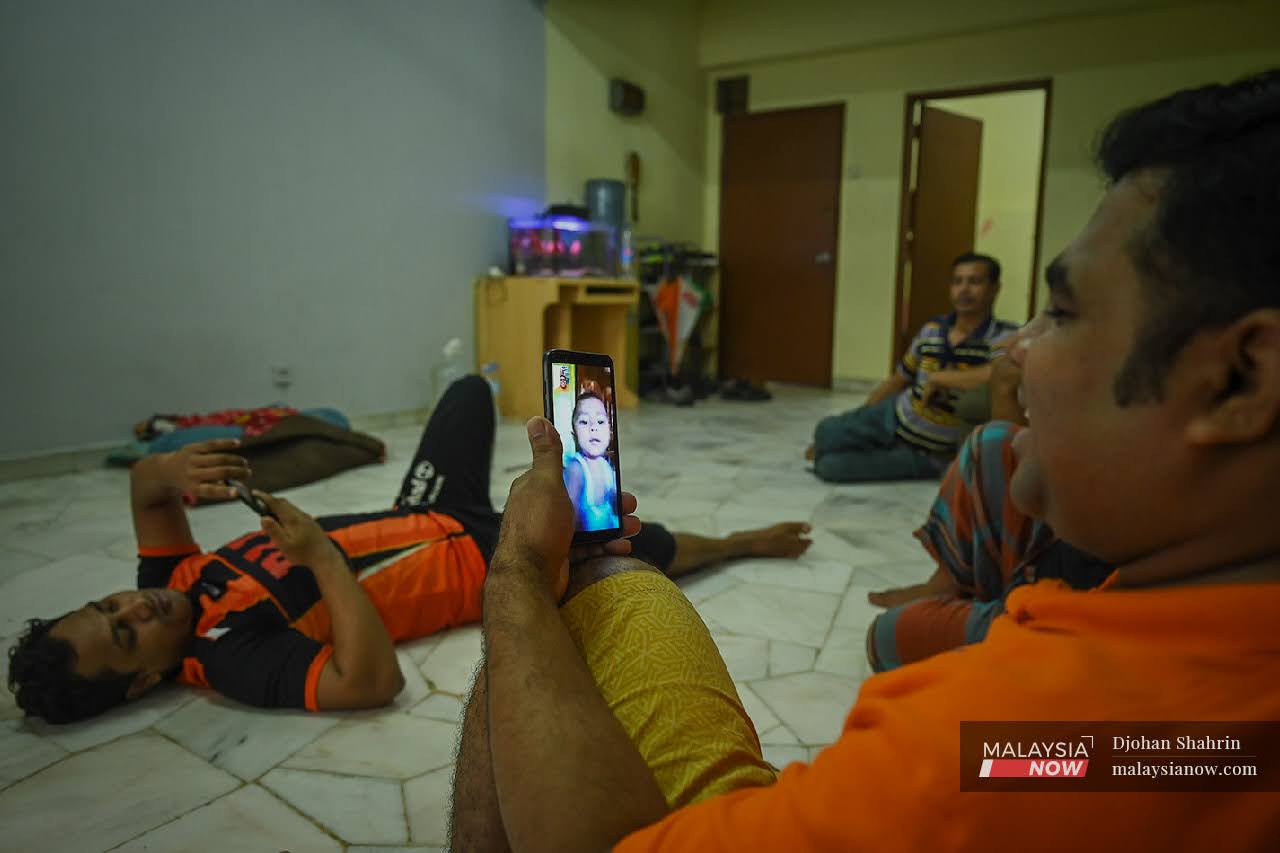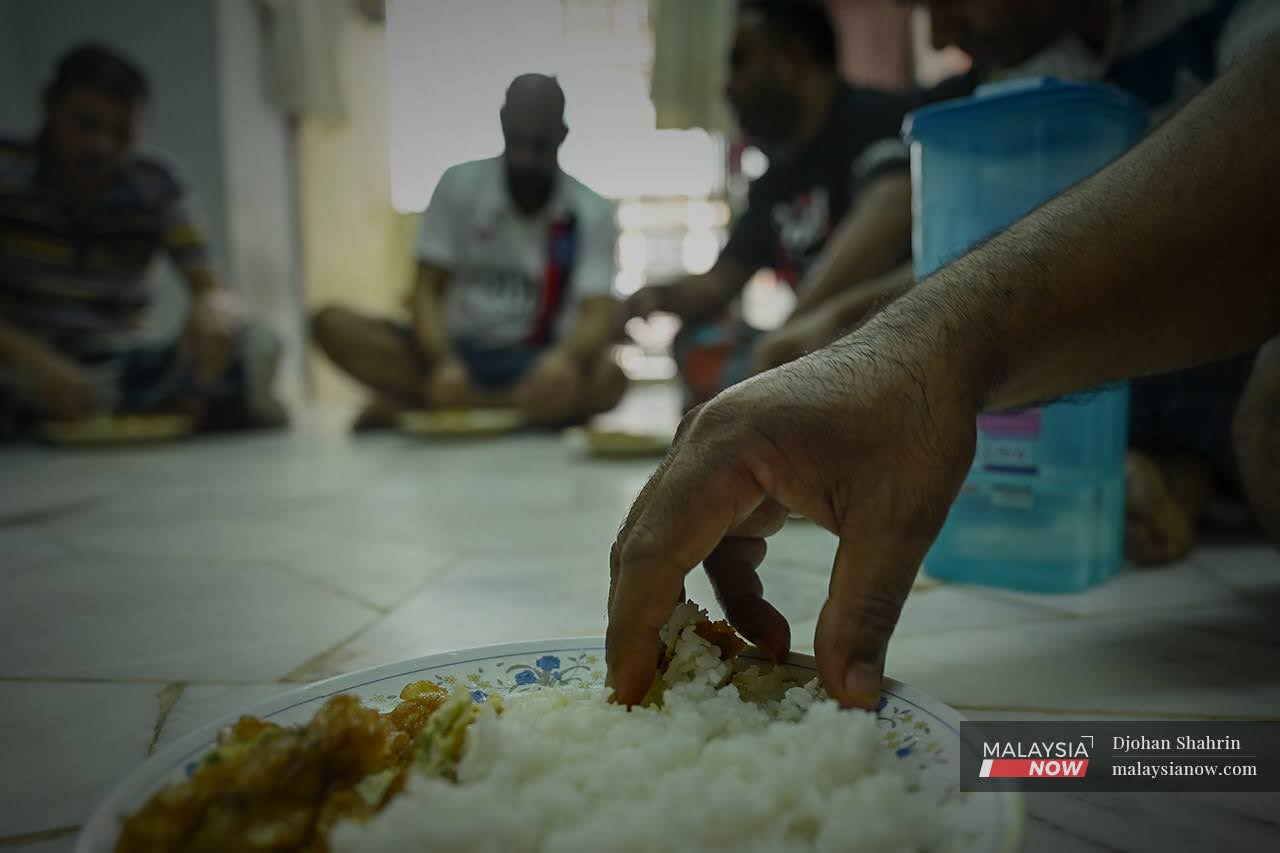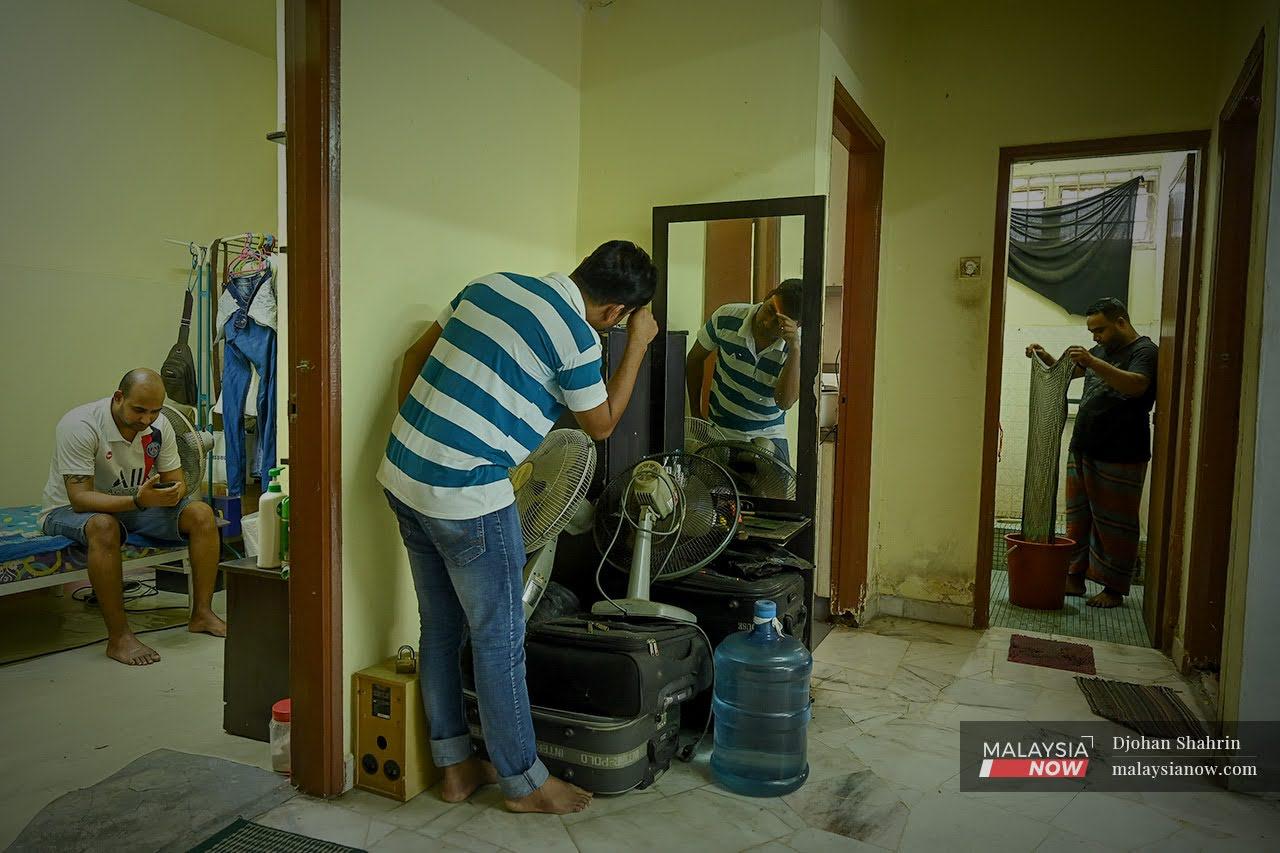Two months and counting for migrant workers unable to work
They have cut down their meals to one a day, waiting for the time when they can go back to work.
For seven years, Mamun woke up at 8am every day except Wednesday to get ready for work.
For him, work meant a 10-hour shift at a car wash in Kuala Lumpur.
He would walk to work and then walk home, day in and day out except for his off-days on Wednesdays.
Two months ago, his routine came to an abrupt halt when the car wash was forced to close down due to the third instalment of movement control order (MCO 3.0).
He and his three colleagues were left adrift with no other means of earning a living at hand.
Since then, life has only gotten harder.
“For two months, we have been unable to pay our rent, electricity bill or water bill because we have no money,” Mamun said when met by MalaysiaNow at their small, bare home in a shop lot area.
The 35-year-old from Bangladesh said he and his friends now spend their days sitting at home, unable to do anything else.
Fact aside that they have no work, they are also afraid that they will be detained by the police if they leave their home.

They are among thousands of migrant workers have documents but still fear arrest after the announcement of a crackdown by the home ministry last month.
Mamun has worked in Malaysia for 13 years now. Before this, he was employed at an electronics factory in Penang.
He and his friends know nothing of the help available for those who have been affected by the Covid-19 pandemic.
“Our boss asked how we were doing and gave us a little money,” he said.
“But we understand that he cannot pay our wages since the car wash has been closed.”

They live with two others who work for a local company, making it six in their modest home. The monthly rent of RM900 is shared out among them.
But this is getting more and more difficult to pay as their friends, while still employed, have been placed on unpaid leave.
Gahid, one of Mamun’s colleagues who shares the house, said they ration out their food so that they will have enough for the next day.
“We used to eat normal meals but now we eat once a day,” the 26-year-old said. “We eat at around 3pm to stave off feeling hungry at night.”
Their meals are simple: rice, vegetables and sometimes an egg.
For four years, Gahid has worked to send home money but if the situation remains unchanged, he may soon have to ask for help from home instead.
“I will wait until the end of the month to see if the MCO is extended. If nothing changes, I will have to ask my parents at home for help,” he said.
They are all clinging to hope that the government will allow businesses to reopen so that they can continue to work as usual.

For this reason, too, they are eager to be vaccinated as quickly as possible.
“Of course we would like to be vaccinated,” he told MalaysiaNow. “We have our documents and have registered, and we hope our turn will come so that we can go back to work.”
Some of his friends are not documented but hope that they, too, will be able to get jabbed. But they also worry that they will be arrested and deported if they show up for their vaccinations.
This follows the government’s announcement that walk-in vaccinations will be allowed from Aug 1 at any vaccination centre in the Klang Valley for those who do not yet have appointments, as well as those with no identification or travel documents.
For now, Mamun and his friends have a more immediate concern at hand: a notice from their landlord warning them that they face eviction if they are unable to pay the rent next month.
As each day under lockdown blends into the next, they can only wait and hope that the situation will somehow get better.
Subscribe to our newsletter
To be updated with all the latest news and analyses daily.
